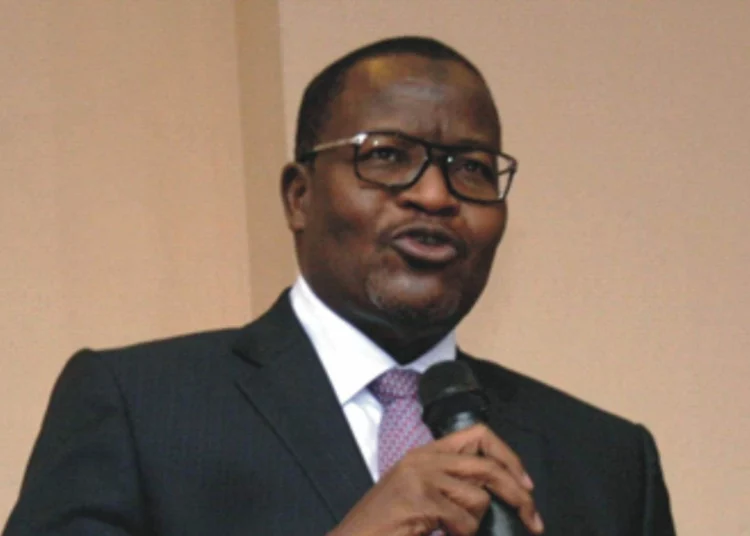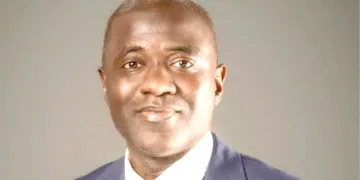Honourable Minister of Communications and Digital Economy, Prof. Isa Ali Ibrahim (Pantami) and the the Executive Vice Chairman/Chief Executive Officer of NCC, Prof. Umar Danbatta made Nigeria proud at the 21st Plenipotentiary Conference (PP-22) of the International Telecommunications Union (ITU), going on in Bucharest, the capital city of the Republic of Romania.
The Nigerian delegation include the Chairman, Board of Commissioners of the Nigerian Communications Commission (NCC), Prof. Adeolu Akande ensure the successful re-election of Nigeria as a Council member of the ITU, the United Nations specialised agency that oversees global telecommunication operations. Nigeria will serve on the Council again from 2023-2026.
The re-election is in clear recognition of the critical role Nigeria is playing on the global telecommunications stage. The election of Nigeria and other countries, on Monday, October 3, 2022, into different regional groups that constitute ITU Council, was the highpoint of the Plenipotentiary Conference 2022 (PP-22) ongoing in Bucharest, the capital city of the Republic of Romania.
At the conference, which started on September 26, 2022 and scheduled to end on October 14, 2022, member states at the event voted on the composition of the next ITU Council and the 12 representatives to serve on the Radio Regulations Board (RRB) for the next four years.
The 21st Plenipotentiary Conference of the Council, also saw the election by member states, of Doreen Bogdan-Martin of the United States of America as the organisation’s next Secretary-General.
Pantami’s Strides at WSIS Forum
Before the ITU Council election, delegates came together on the sidelines of the conference to discuss the continuation of the World Summit on the Information Society (WSIS) process, which is to be considered by the United Nations General Assembly in 2025.
Professor Isa Ali Ibrahim, Nigeria’s Minister of Communications and Digital Economy and the Chair of WSIS Forum 2022, welcomed participants remotely and highlighted the importance of the WSIS process in helping to achieve the Sustainable Development Goals (SDGs) set by the United Nations for 2030.
Addressing participants, ITU Deputy Secretary-General Malcolm Johnson said: “The WSIS process has proved itself over the years and is a force for global public good. It has gone from strength to strength.”
The Minister outlined some major achievements of the WSIS process, including uniting countries and institutions globally; gathering over 25,000 participants in person and another 100,000 virtually; providing a platform for connectivity during COVID-19; aligning WSIS Action Lines with the SDGs; conducting WSIS stocktaking since 2004; awarding WSIS prizes; supporting stakeholder-led WSIS special initiatives; forming a UN group on the information society; and aligning WSIS action lines and the SDGs with special days on the UN calendar.
ITU Secretary-General Houlin Zhao stressed the importance of maintaining WSIS to help connect the 2.7 billion people worldwide who still lack Internet access. “It is important to have our WSIS Forum annual meetings continued,” he said.
The Honourable Minister thanked participants for their positive interventions, saying: “We do hope that we will continue to implement the WSIS process [beyond 2025] in our countries and our institutions.” The next annual WSIS Forum is scheduled to take place between 13 and 17 March 2023 at ITU headquarters in Geneva, with the option of remote participation.
Nigeria’s Re-election
Like Nigeria and the countries elected into the Council, Bogdan-Martin, as the first woman to lead ITU in its 157-year history, will begin her four-year term from January 2023, when Houlin Zhao would have completed his second final term of four years in office as ITU Secretary General.
The seats in ITU Council are divided into five regions, A to E. Nigeria was elected into the ITU Council, Region D for Africa, which has 13 seats. Other 12 countries elected alongside Nigeria are Algeria; Egypt; Ghana; Kenya; Mauritius; Morocco; Rwanda; Senegal; South Africa; Tanzania; Tunisia; Uganda.
Elections of member states also took place into the Region A for The Americas (nine seats); Region B for Western Europe (eight seats); Region C for Eastern Europe & Northern Asia (five seats); and Region E, for Asia and Australasia with 13 seats as Africa.
Commenting on Nigeria’s re-election as ITU Council member, the Executive Vice Chairman and Chief Executive Officer, Prof. Umar Danbatta, thanked the ITU member states for the confidence it has in Nigeria expressed by the re-elected into the ITU Council, in which the country has been playing critical role over the years.
“The re-election of Nigeria as a member of ITU Council for the next four years, again, points to the globally-recognised leadership role Nigeria is playing in Africa and at the level of ITU Council in the area of telecommunications policy formulation and technical regulations development to drive ITU’s mission and vision,” the EVC said.
The ITU, originally established in 1865 as the International Telegraph Union and became a United Nations specialised agency in 1947, was set up to coordinate telecommunications operations and services throughout the world. It is headquartered in Geneva, Switzerland.
Nigeria became a member of ITU on November 4, 1961. The USA joined on July 1, 1908; United Kingdom, February 24, 1871, and UAE on June 27, 1972. The ITU is governed by the Plenipotentiary Conference and the Administrative Council. The Plenipotentiary Conference is the supreme organ of the Union. It is the decision-making body which determines the direction of the Union and its activities.
The Council, on the other hand, acts as the Union’s governing body in the interval between Plenipotentiary Conferences. Its role is to consider broad telecommunication policy issues to ensure that the Union‘s activities, policies, and strategies fully respond to today‘s dynamic, rapidly changing telecommunications environment.
ITU Council also prepares a report on the policy and strategic planning of the ITU, and it is responsible for ensuring the smooth day-to-day running of the Union, coordinating work programmes, approving budgets, and controlling finances and expenditure.
Meanwhile, The ITU will hold its next Plenipotentiary Conference, known as PP-26, in Doha, Qatar, four years from now, delegates from governments around the world agreed.
The decision to host PP-26 in Doha was adopted by consensus among the Member State delegations during the second week of ITU‘s current Plenipotentiary Conference, PP-22, in Bucharest, Romania.
The quadrennial gatherings serve as milestones on the path to global digital transformation, which ITU aims to align with United Nations sustainable development priorities.
“I applaud the decision to hold the next ITU Plenipotentiary Conference in Qatar, the successful host nation of previous important ITU events,“ said ITU Secretary-General Houlin Zhao. “PP-26 – marking less than four years until 2030 – will support accelerated digital uptake, which is crucial for achieving the UN Sustainable Development Goals and ensuring that everyone is connected by the end of the decade.“
Zhao recalled Qatar‘s hosting of ITU‘s World Telecommunication Development Conference in 2006, the Connect Arab Summit in 2012, and ITU Telecom World in 2014.
Underlining the challenges ahead for ITU and its membership between now and the newly announced PP-26, ITU‘s latest statistics show an estimated 2.7 billion people – or one-third of humanity – still lacking access to the Internet. Stark digital divides persist despite accelerating progress over the last two decades and a global connectivity surge during COVID-19.




